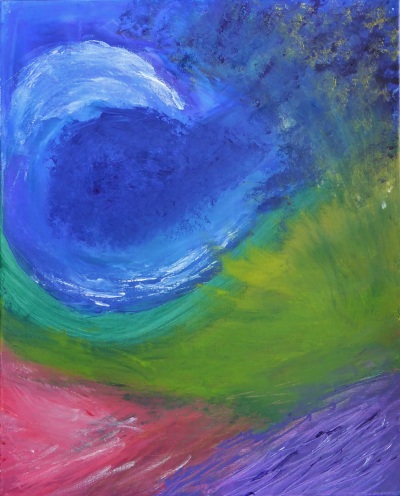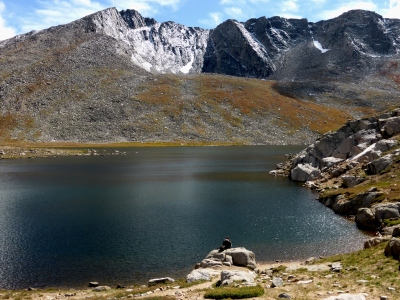Everyone Can Be Creative
Next to finding and following your passions, being creative is the state-of-the-art state of being. Anecdotally speaking, look around in the media, in local businesses and establishments, and your own workplace, and you’ll find a host of hype and buzz surrounding the magical, mystical, secret-to-success concept of “creativity.” I can’t help thinking, though, that this excitement for creativity is trying to take something from the traditionally creative type of people that will always be theirs: the creating part of creativity.
Workplaces and workers alike are scrambling to find their own creativity. Ping pong tables and free massages, gourmet lunches and bean bag chairs, living walls and art deco murals. Such workplaces à la Google, Valve, and Desire2Learn are based on the creativity concept and designed to encourage worker participation, originality, accountability — even enjoyment — and of course, production. It’s all about injecting a little freedom to think and innovate outside the norm. While this approach is old news by now, the creativity idea remains, and how it has flourished.
Books like Creativity, Inc. by Ed Catmull and Amy Wallace and Creative Confidence by Thomas Kelley and David Kelley explain how crucial creativity is to workplace success and how anyone can nurture creativity. Public libraries such as The Halifax Central Library are renovating (or in this case, rebuilding) their spaces to be more like those creative workplaces and to encourage public interaction and collaboration.
Some colleges and universities offer creativity focused courses, such as The Creative Process and Studies in Creative Collaboration in Ryerson’s Creative Industries BA program, and Design Strategies for Business Innovation: Studio Practice and simply, Creativity in University of British Columbia’s Bachelor of Commerce. Creativity can be taught and learned. “Creativity” is everywhere, and it is for everyone.
So the mantra goes. Many of the creativity concept proponents source their favour for it from the traditional creative types: the artists. The painters, the sculptors, the dancers, the poets, the composers, the artisans. Creativity worked for them. Their names echo through history for their originality and innovation. They were able to think in unique, unrestricted ways due to their unusual (i.e. creative) habits of life and work. So let’s make an impact, the creativity advocates say. Let’s be the firsts of something, let’s find success like the creatives did by doing what they did. Let’s be different.
But Not Everyone Is Creative
It seems to the artist — at least, to this writer in particular — that there is a bit of identity theft going on here. No longer can the creative types claim creativity as their domain, their specialty. Everyone can be creative to some degree. “You’re creative because you’re a writer? Well, I’m creative in my business solutions for my clients.” So the feeling goes, anyway. What once was a defining trait of an entire group of people is now a latent potential inherent in everyone.
I want to reclaim a part of creativity back for us creatives. What remains unique to creative individuals is the drive to create. Creative people, like no other, possess a deep rooted motivation to produce for the sake of production which urges them to bring into existence that which had not before existed. Consumption is not enough. Enjoying the creations of others does not quench the creative’s imagination or creative desire. Quite the opposite. Consumption ignites inspiration and fuels the desire to create something as stirring or beautiful as what they consumed. They must make their own contribution to the world.
No where have I experienced the creative drive like I have in my university creative fiction and poetry workshop classes. The classes were filled with a diverse group of individuals, from an egotistical teacher’s pet and an unshaven feminist, to a hardcore, hilarious nerd and a laid-back, beer-loving ruralite. Our opinions and perspectives varied as much as our writing styles, and not all of our relationships were created equal. Yet I have never felt as at home as I did among that peer group. Running through all of us and cutting down our differences was not only the desire, but also the need to create.
We shared stories of how our hobbies and our writing filled that need. One woman drew comics to help her think; another played piano to keep her sane; a third baked delights for experimentation’s sake. Although we didn’t personally partake in each other’s pastimes, we understood the reasons behind them. We all felt those same reasons, and more. Our creations are an extension, expression, exultation of ourselves that cannot be contained. I cannot be happy to my core if I cannot create.
And this is what non-creative individuals are missing. It is not imagination, ingenuity, innovation — the periphery elements of creativity. All of that can be attained with some free-thinking tricks and risk-taking. It is the internal, unstoppable need to create that is definitive to creative individuals, and essential to creativity.




